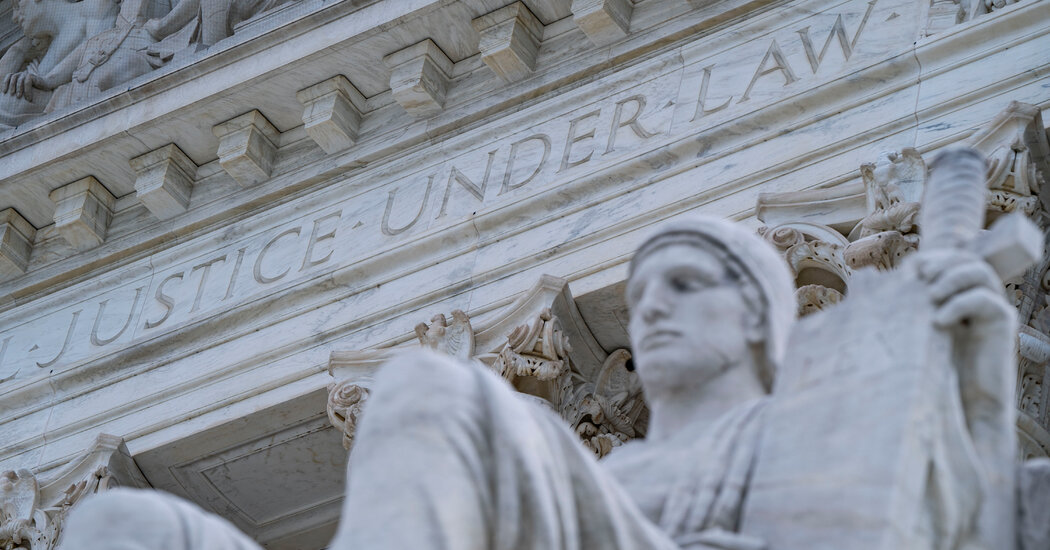The justices settled a question left open in 2018: whether businesses open to the public and engaged in expression may refuse to serve customers based on religious convictions.
Some fun facts about this case.
There was no web design business. There was no gay client asking for a super gay wedding website. The supposed client didn’t even know about the case and is not gay.
The supreme court took on a hypothetical case and used it to make gays second class citizens.
I think this quote sums up how batshit this scotus is via David S. Bernstein:
A little weird tho that a private business CAN choose to DENY a customer because he/she is a member of a protected class, but a private university CANNOT choose to ACCEPT a customer because he/she is a member of a protected class.
Fucking mind-blowing amount of hypocrisy here.
So it’s now legal to have a “WHITES ONLY” or a “STRAIGHTS ONLY” sign on your door?
I don’t love this ruling, but that’s very much not what it’s saying, no. The fundamental point is that businesses that are substantially creative in nature cannot be compelled to produce speech they strongly disagree with. The case was litigates as a free speech case, not a civil rights one.
It’s important to note that this was examining a state law, so it does depend on the state, but in Colorado for instance, a bar could still absolutely not have a “No Blacks” sign. However, a racist graphic designer could refuse a request to design a logo for a Black Lives Matter group, though they could not necessarily refuse a non-political request from a client that happens to be Black. On the flip side, this ruling also protects a graphic designer from being compelled to produce a Neo-Nazi design, for instance.
It’s important to note that this was examining a state law, so it does depend on the state, but in Colorado for instance, a bar could still absolutely not have a “No Blacks” sign.
Why not? Why isn’t a sign an expression of free speech?
The ruling specifically applies to the production of speech. A sign making company could refuse to make a “Whites Only” sign, for instance, without that being an example of discrimination against white people, per the logic of this ruling.
On the flip side, this ruling also protects a graphic designer from being compelled to produce a Neo-Nazi design, for instance.
@BraveSirZaphod There’s never been any risk of that. Being a Neo-Nazi isn’t a protected class. Sexual orientation is.
More freedumb for “religious” heretics who promote brain-dead interpretations of scripture, actually.
SCOTUS continues SCOTUSing.
Ultimately, my thoughts are a bit mixed, and it really comes down to just how much leeway is given to businesses. I can understand an argument that a web site is a sufficiently creative and expressive work such that the government mandating a business take on a client is essentially compelled speech in violation of the First Amendment, and a secondary benefit is it being made abundantly clear that a gay baker wouldn’t ever have to create a “Gays are groomers” cake or anything like that. I think the real question, and something I haven’t seen much information on yet, is exactly where that line is. I’d like to think that a business owner simply refusing basic service because a customer is gay would still be something that a state can prohibit, and if not, I don’t see how that doesn’t opening up some legal room for “Whites only (because Jesus told me that in a dream)” signs - essentially legalizing any form of discrimination so long as it’s hidden under the veil of religion. I’d imagine the Court really doesn’t want to get into the business of deciding what a legitimate religion is.
I thought this is what the Supreme Court decided with the cake guy, that he didn’t have to make a cake specifically for them, but if he was selling generic cakes, wedding or not, they would be required to sell them. I could be wrong though, but that’s what I thought they went with.
That ruling was extremely narrow and decided basically on procedural technicalities. This case addressed the actual legal question.
“I’d imagine the Court really doesn’t want to get into the business of deciding what a legitimate religion is”.
Given the make-up of SCOTUS, a legitimate state religion IS their bias. Overturning Roe is an example of ruling for their religious bias.






